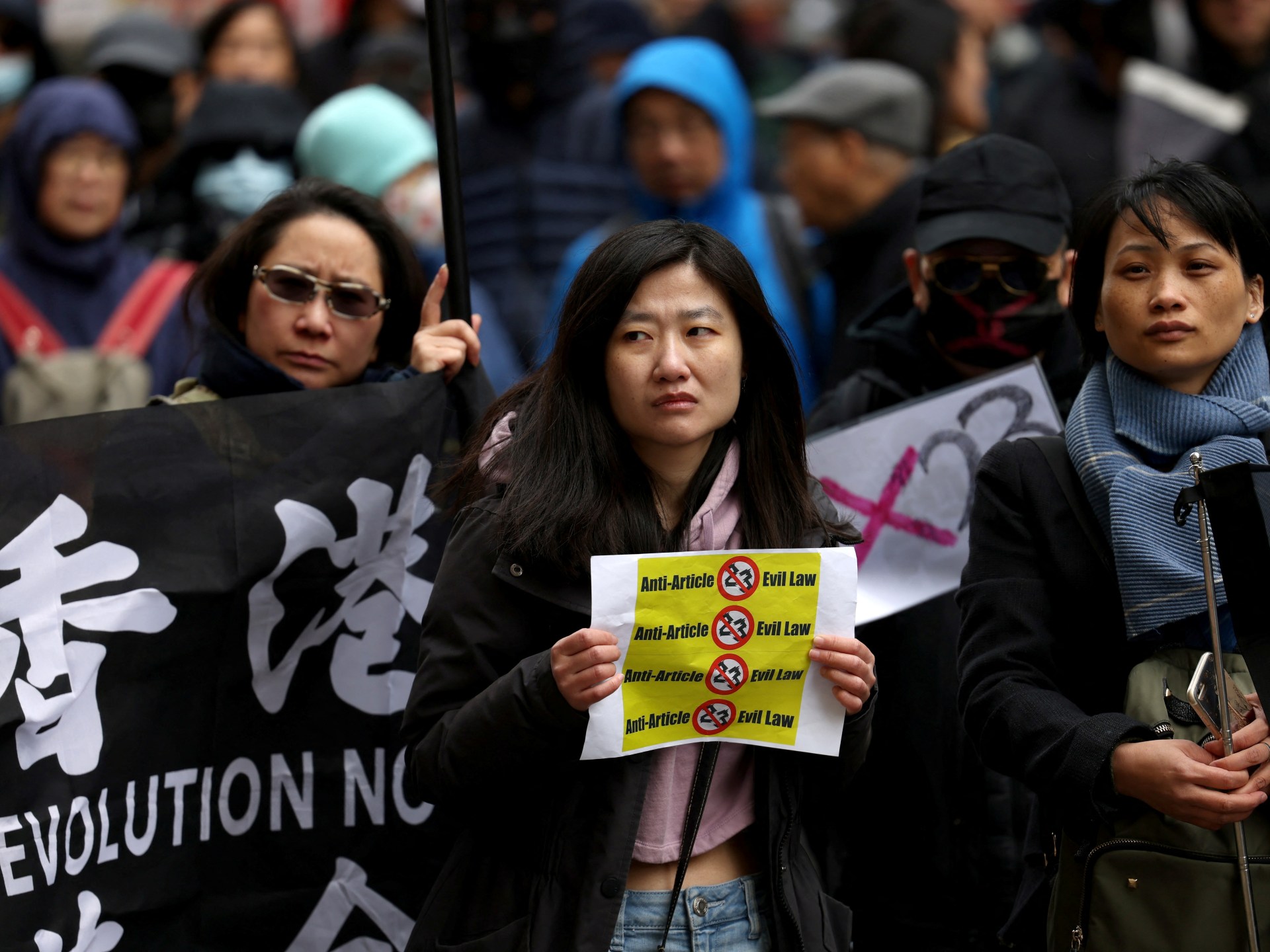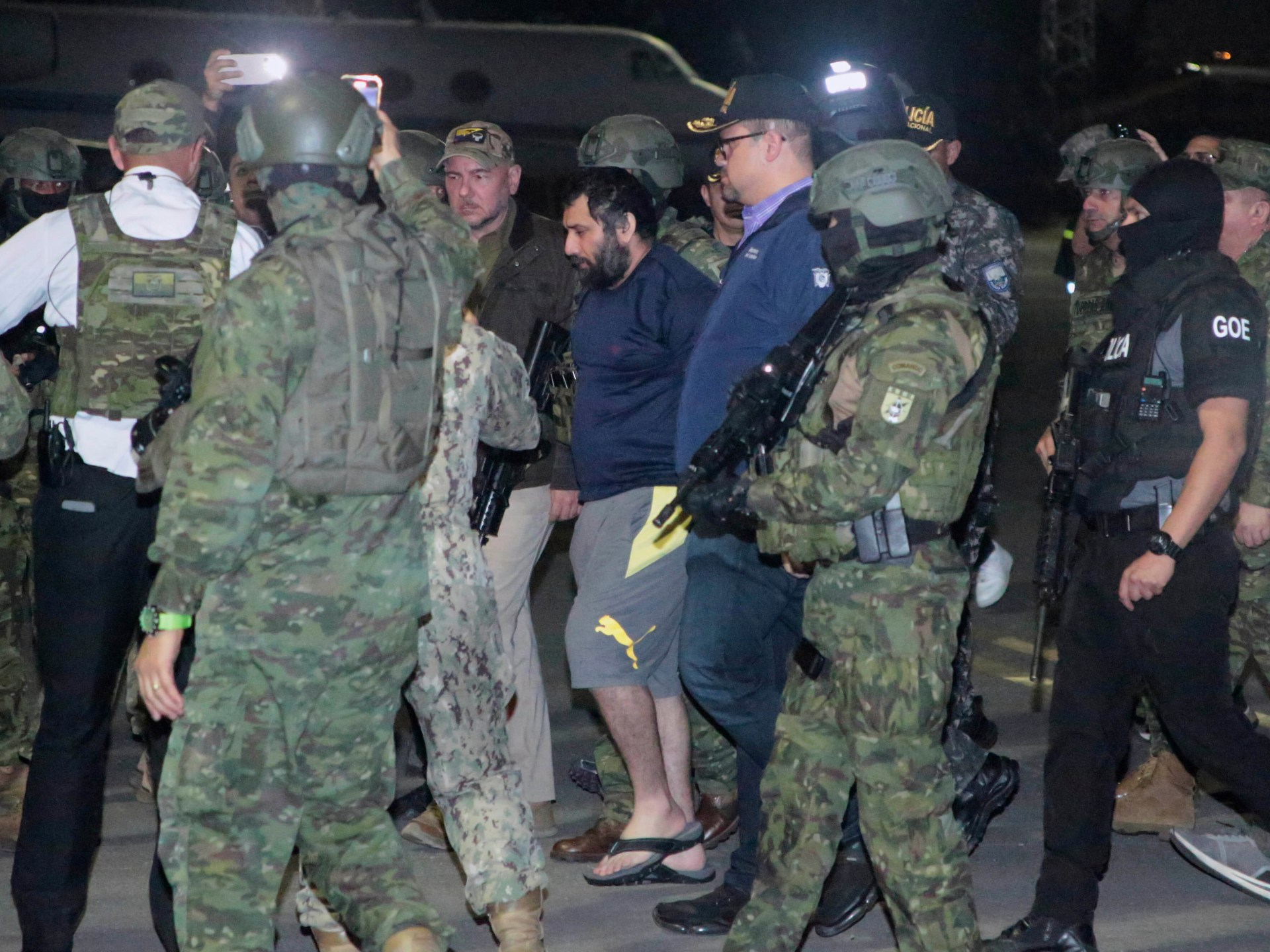UK moves to reinstate extradition deal with Hong Kong despite concerns | Politics News
The United Kingdom government is moving to reinstate extradition cooperation with Hong Kong that was suspended five years ago due to concerns about the city’s Chinese national security laws.
The Home Office applied to Parliament to make the changes on July 17, followed by a letter to Shadow Home Secretary Chris Philp the next day.
“It is in our national interest to have effective extradition relationships to prevent criminals from evading justice and the UK becoming a haven for criminals,” the July 18 letter from Security Minister Dan Jarvis said.
The Home Office also plans to restore an extradition framework with Chile and Zimbabwe, according to the letter, which was shared on X by Conservative MP Alicia Kearns.
Cases for Hong Kong and Zimbabwe would both be considered on a “case-by-case basis,” Jarvis said.
Hong Kong, a former British colony, is a particular sticking point for the UK due to their historical relationship and the sharp decline in political freedoms in Hong Kong since China imposed controversial national security legislation in 2020.
In 2024, legislators in Hong Kong approved a new national security law - referred to as Article 23 – that gave the government new powers to crack down on all forms of dissent on the grounds of alleged treason, espionage, sedition and external interference in Hong Kong’s internal affairs.
At the time, Hong Kong’s government said Article 23 was needed to prevent a recurrence of the protests of 2019, and that its provisions would only affect “an extremely small minority” of disloyal residents.
The UK, Canada, Australia, France, Germany and the United States all suspended their extradition agreements in 2020 with the Chinese city due to concerns about how the laws would be used.
“In my view, reinstating extradition with Hong Kong is morally indefensible. The Chinese Communist Party has turned Hong Kong into a surveillance state where freedom of expression, rule of law, and basic civil liberties are systematically dismantled,” Kearns wrote on X.
“This move risks legitimizing a regime that imprisons critics, silences democracy activists, and uses extradition as a tool of persecution,” she said.
Here is the letter from the Home Office.
In my view, reinstating extradition with Hong Kong is morally indefensible.
The Chinese Communist Party has turned Hong Kong into a surveillance state where freedom of expression, rule of law, and basic civil liberties are… pic.twitter.com/6gb923QXKb
— Alicia Kearns MP (@aliciakearns) July 24, 2025
Ronny Tong, a Hong Kong barrister and member of the city’s executive council, told Al Jazeera that concerns about a potential extradition deal were overblown.
“Extradition is in relation to non-political criminal cases, so any fear that it’d be used to transfer persons with political crimes, eg, national security cases, is totally unfounded and only shows ignorance of the procedure,” he said. “Furthermore, it is up to judges of the transferring state to ensure the procedure will not be abused.”
He said the city was “more than ready to restart the arrangement, as we have full confidence our judges are totally independent and of highest integrity”.
Hong Kong’s 2020 national security law criminalised secession, subversion, terrorism and foreign interference, and was supplemented in 2024 to include treason, sedition, theft of state secrets, espionage, sabotage, and external interference.
Hong Kong’s government has said the laws are necessary to protect the city from political sabotage and foreign influence, following months of pro-democracy demonstrations in 2019.
Security Minister Chris Tang said in June that 326 people have been arrested under Hong Kong’s national security laws since 2020.
The government has also used international bounties to expand its reach to Hong Kong activists abroad, or cancelled their passports while they were overseas.
The moves have been seen as largely symbolic, but also chilling for a city that was once considered the freest place in Asia.
On Friday, Hong Kong issued a new list of bounties for 19 activists involved with a pro-Hong Kong democracy NGO in Canada.
Hong Kong returned to Chinese sovereignty in 1997 as a “special administrative region” and was promised special rights and freedoms until 2047, under the Sino-British Joint Declaration.

